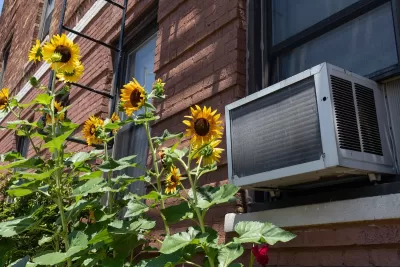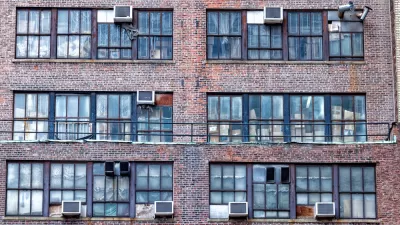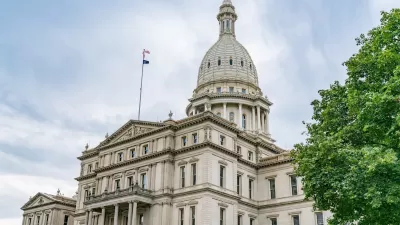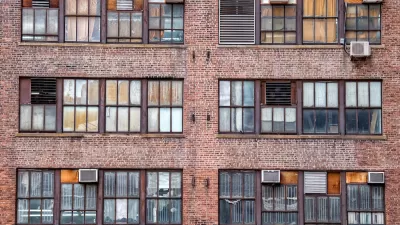The group wants to draw attention to the dangers of extreme heat and encourage tenants to organize to demand improved conditions.

A Chicago nonprofit is distributing free air conditioning units to low-income tenants in the city to help people stay safe during extreme heat events.
As Lucas Frisancho explains in Next City, “Through social media outreach and in-person, grassroots organizing, organizers source AC units and personally visit tenants to install them for free. The equipment is collected and stored over the winter, to be returned to the same tenants next summer. Last summer, the group gave out less than 20 units; this summer, they expect to give away more than 70.”
The project, dubbed the People’s Cooling Army, is an initiative of the All-Chicago Tenant Alliance. The organization is also conducting outreach about tenants’ unions and encouraging renters to unionize and leverage their power. “Founded in 2023, the People’s Cooling Army has been entirely powered by donations. All its operations are conducted by nine members with access to three cars.”
Extreme heat poses a growing public health risk to urban residents, particularly low-income households without access to cooling, which are often located in neighborhoods with the highest temperatures due to extensive pavement and lack of green space and trees. In Chicago, three women in a senior living facility died from excessive heat exposure in a 2022 heat wave. The city responded with an ordinance that calls for air conditioning in ‘common gathering spaces’ in senior housing and larger buildings, but the Tenants’ Alliance says the legislation applies to few of the cities’ buildings.
FULL STORY: Chicago’s “People’s Cooling Army” Is Giving Tenants Free Air Conditioners

Alabama: Trump Terminates Settlements for Black Communities Harmed By Raw Sewage
Trump deemed the landmark civil rights agreement “illegal DEI and environmental justice policy.”

Study: Maui’s Plan to Convert Vacation Rentals to Long-Term Housing Could Cause Nearly $1 Billion Economic Loss
The plan would reduce visitor accommodation by 25% resulting in 1,900 jobs lost.

Why Should We Subsidize Public Transportation?
Many public transit agencies face financial stress due to rising costs, declining fare revenue, and declining subsidies. Transit advocates must provide a strong business case for increasing public transit funding.

Paris Bike Boom Leads to Steep Drop in Air Pollution
The French city’s air quality has improved dramatically in the past 20 years, coinciding with a growth in cycling.

Why Housing Costs More to Build in California Than in Texas
Hard costs like labor and materials combined with ‘soft’ costs such as permitting make building in the San Francisco Bay Area almost three times as costly as in Texas cities.

San Diego County Sees a Rise in Urban Coyotes
San Diego County experiences a rise in urban coyotes, as sightings become prevalent throughout its urban neighbourhoods and surrounding areas.
Urban Design for Planners 1: Software Tools
This six-course series explores essential urban design concepts using open source software and equips planners with the tools they need to participate fully in the urban design process.
Planning for Universal Design
Learn the tools for implementing Universal Design in planning regulations.
Smith Gee Studio
Alamo Area Metropolitan Planning Organization
City of Santa Clarita
Institute for Housing and Urban Development Studies (IHS)
City of Grandview
Harvard GSD Executive Education
Toledo-Lucas County Plan Commissions
Salt Lake City
NYU Wagner Graduate School of Public Service





























